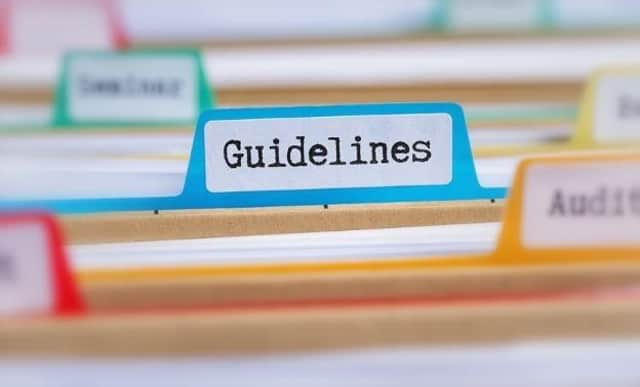New NICE guideline urges doctors to ask patients about gambling habits


Gambling has become an increasingly prevalent issue in modern society, affecting not only individuals but their families and communities as well. Gambling addiction is a serious problem which is on the rise. It is a concern that cannot go unnoticed and needs immediate addressing.
Many people initially treat this activity as a pastime, therefore not all compulsive gamblers display addictive behaviour from the start. However, once the thrill of free slots with no deposit required, free spins and many other lucrative deals are promoted, the lure of a potentially big win cannot be easily ignored. This is when it can get out of hand rather quickly, says NoDeposit365 UK
Acknowledging the need to address this issue more comprehensively, the National Institute for Health and Care Excellence (NICE) in the United Kingdom has introduced a groundbreaking guideline urging healthcare professionals to inquire about their patients’ gambling habits. This initiative aims to improve early intervention and promote responsible gambling, thereby fostering a healthier society.
We’ll delve into the significance of the NICE guideline, the impact of gambling on public health, and the importance of initiating conversations on this sensitive topic during medical consultations.
The NICE guideline in a nutshell
The NICE guideline, officially titled ‘Harmful Gambling: Identification, Assessment and Management’ underscores the importance of addressing gambling-related harm as part of routine clinical practice. The guideline emphasises the need for healthcare professionals, including GPs, nurses and mental health specialists, to initiate conversations about gambling habits with their patients during appointments.
By incorporating discussions about gambling into standard healthcare consultations, the guideline hopes to identify individuals at risk of developing gambling-related harm and provide them with appropriate support and guidance before the problems escalate. This approach aligns with the broader mission of NICE to enhance the quality of healthcare in the UK.
The rising concern of gambling-related harm
The prevalence of gambling-related harm in the United Kingdom has steadily grown over the years. It encompasses various issues, including addiction, financial difficulties, mental health problems and strained personal relationships. The economic and social costs associated with gambling harm are substantial, making it an urgent public health concern.
For individuals, gambling can lead to a range of problems, from excessive debt and bankruptcy to anxiety and depression. Families are also deeply affected, often experiencing emotional distress and financial instability. Furthermore, communities grapple with the negative consequences of gambling, such as crime and social disruption.
The NICE guideline recognizes the far-reaching impact of gambling harm and seeks to combat it by taking a proactive stance within the healthcare system.
Encouraging responsible gambling
One of the key objectives of the NICE guideline is to encourage responsible gambling. While not all individuals who gamble will develop problems, it’s essential to promote safer practices within the gambling industry and among consumers.
By fostering open conversations about gambling habits during medical consultations, healthcare professionals can educate patients about responsible gambling and the potential risks involved. This approach empowers people to make more informed decisions and seek help when needed, thereby reducing the likelihood of gambling-related harm.
Understanding the value of early intervention and support
The NICE guideline recognises the importance of early intervention in preventing gambling-related harm before serious issues arise. Identifying individuals at risk or already experiencing harm is crucial for providing the appropriate support and treatment. Early intervention can significantly improve outcomes for those affected by gambling-related issues.
Healthcare professionals are encouraged to ask patients about their gambling habits, regardless of their age or demographic. This clearly acknowledges that gambling harm can affect people from all walks of life, the guideline ensures a broad and inclusive approach to addressing this issue.
Looking forward with compassion
Engaging patients in conversations about gambling habits should be approached with sensitivity and compassion. It is essential to create a safe and non-judgmental environment where patients feel comfortable discussing this potentially stigmatised topic. Healthcare professionals should be equipped with the necessary skills and training to handle these discussions effectively.
Moreover, the guideline also serves as a reminder that healthcare is not limited to physical health but encompasses the overall wellbeing of individuals. By addressing gambling harm and promoting responsible gambling practices, healthcare professionals are well positioned to play a pivotal role in fostering a healthier society.
Essentially, the NICE guideline urging healthcare professionals to ask patients about their gambling habits is a significant step towards addressing gambling-related harm in the United Kingdom. By initiating open and compassionate conversations, healthcare providers can play a crucial role in identifying individuals at risk and guiding them towards responsible gambling practices and support when needed.
The impact of gambling on public health is undeniable, affecting individuals, families and broader communities. It is, therefore, imperative that we collectively recognise the issue and work together to mitigate its harmful effects in a more holistic manner. The NICE guideline serves as a call to action on this, emphasising the importance of early intervention in our pursuit of a healthier and more socially responsible society.
DISCLAIMER: If you suffer from a gambling problem or suspect somebody you know does, then we strongly suggest that you call the National Gambling Helpline at 0808-8020-133 to talk with an advisor for help and to make gambling safer for you or your loved ones. Remember all gambling sites and guides are 18+ only.
Visit these free gambling addiction resources:
https://www.gamstop.co.uk/
https://www.gamcare.org.uk/
https://www.begambleaware.org/